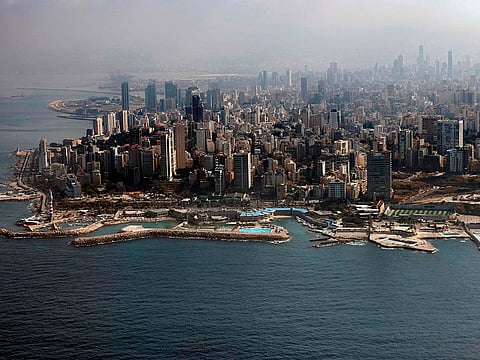No end in sight for Lebanon’s sorry affairs
Corrupt political establishment a stumbling block to urgent reforms

By the end of this month, Lebanon could plunge into darkness, literally, according to the country’s minister of energy, as officially bankrupt state is unable to pay most of its bills.
Raymond Ghajar’s warning of the dire state of affairs is just part of Lebanon’s unprecedented economic collapse, which the World Bank said in a report published on Tuesday was among the world’s top three worst financial crises since 1850.
In its shocking report, the World Bank said Lebanon’s economy will further decline by close to 10 per cent in 2021 as there is “no clear turning point in the horizon” to fix Lebanon’s books. Lebanon’s economy contracted by 6.7 per cent in 2019 and 20.3 per cent in 2020.
According to the report, Lebanon defaulted on its debt last year, the currency lost around 85 per cent of its value and poverty is “devastating a country once seen as a beacon of prosperity in the region.” In addition to the shattering short impact on the country, the report noted that “the sharp deterioration in basic services would have long-term implications: Mass migration, loss of learning, poor health outcomes, lack of adequate safety nets, among others,” stressing that “the permanent damage to human capital [that] would be very hard to recover.”
It concluded that such brutal economic collapses are usually the result of war. However, the current collapse is not.
It is because of fundamental and chronic illnesses. Lebanon spends more than it earns. Its GDP is valued at $50 billion; its public debt however is at $87 billion. The reason for such high ratio, one of the largest in the world if not the largest, is a corrupt political establishment, which has been in control of the country’s politics since the end of the civil war in 1990.
Donor countries pledged in February last year nearly $11 billion in aid. But the bailout package was conditional — urgent, substantial reforms are required before Lebanon got any money. Those reforms have yet to take place and unlikely will happen anytime soon, as the political parties have failed for the past eight months to agree on a new government.
And as long as Lebanon is under the control of sectarian and communal parties, led by the same militia leaders who fought against each other in the 1975-1990 civil war who have benefited politically and financially from the absence of a functional system for decades, it is almost certain that Lebanon will continue its descend into darkness, which will most likely lead to social unrest and impact regional equilibrium.








